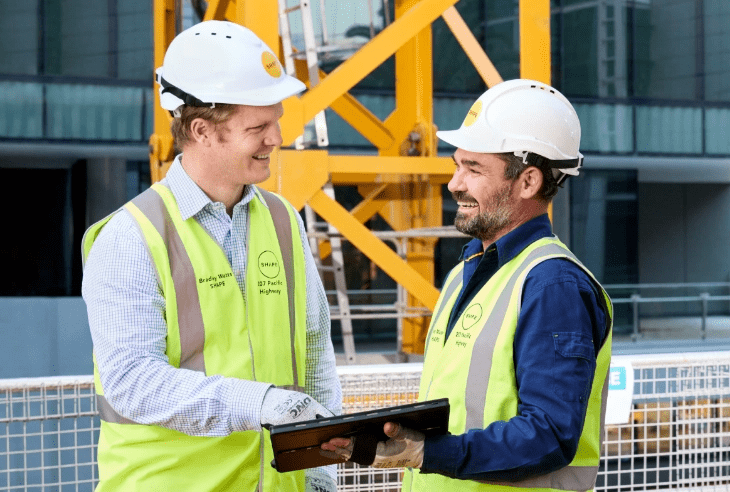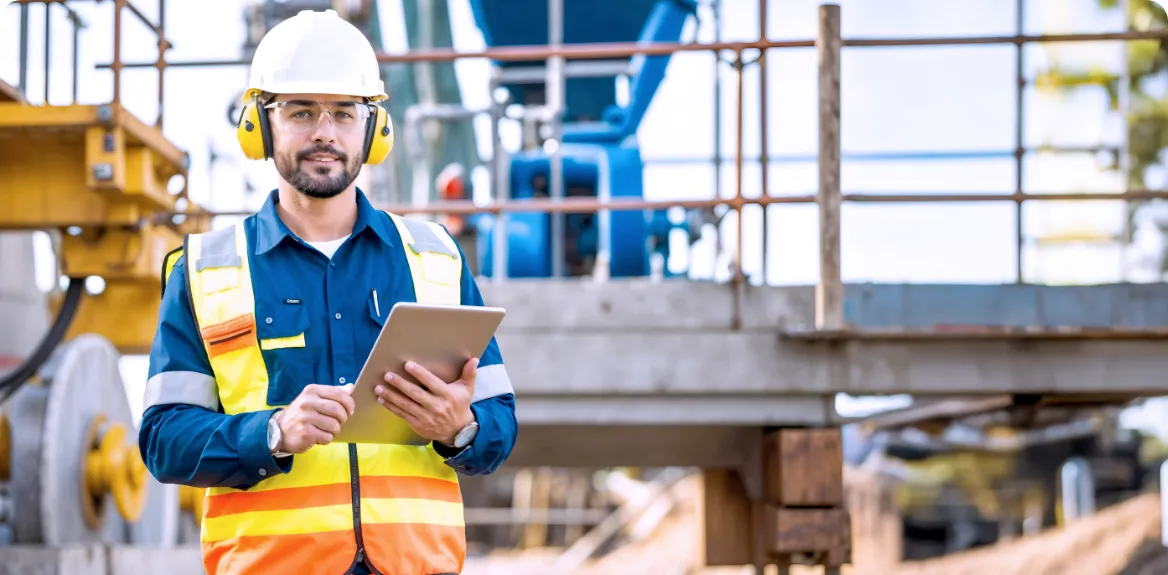
The construction industry, a global giant, has traditionally lagged behind in digitalization. Nevertheless, a paradigm shift is underway as businesses recognize the transformative potential of ...
The construction industry, a global giant, has traditionally lagged behind in digitalization. Nevertheless, a paradigm shift is underway as businesses recognize the transformative potential of digital technologies.
This article provides an in-depth examination of the repercussions, emerging trends, and challenges associated with the ongoing digital revolution within the construction sector.
Digital transformation in the construction industry represents a profound shift in how projects are conceived, planned, and executed. It involves the strategic integration of cutting-edge digital technologies such as the Internet of Things (IoT), artificial intelligence (AI), and Building Information Modeling (BIM). These technologies collectively enhance efficiency, productivity, and safety standards, transcending traditional practices. For example, IoT devices on construction sites enable continuous monitoring, providing real-time data for informed decision-making, resource optimization, and risk mitigation. AI automates tasks and employs predictive analytics, improving safety by identifying potential hazards based on historical incident data. Building Information Modeling (BIM) facilitates collaboration, minimizing errors, reducing rework, and streamlining the construction process.
In essence, digital transformation is a comprehensive approach that leverages the power of interconnected technologies to redefine operational frameworks, from corporate management to on-site execution. It fosters a dynamic and data-driven construction environment, enabling real-time collaboration, informed decision-making, and proactive risk management. As the construction industry embraces these transformative technologies, it paves the way for a smarter, more agile, and future-oriented sector.
The construction sector's digital technologies market is poised for substantial growth, with Allied Market Research projecting an approximate increase of $29 billion by 2027. This financial outlook highlights the industry's acknowledgment of the transformative potential inherent in digitalization. Consequently, substantial investments and initiatives are underway to harness the benefits presented by emerging technologies. As the construction landscape embraces digital transformation, the sector envisions not only operational optimization but also a fundamental redefinition of how projects are conceptualized, planned, and executed.
The construction industry finds itself at the forefront of a transformative era, driven by the pervasive integration of advanced technologies. As the digital landscape continues to evolve, key trends are emerging as catalysts for change, fundamentally altering conventional approaches within the construction sector. This paradigm shift is not only reshaping traditional processes but also defining a new trajectory for the industry's future. In this exploration of key trends in digital transformation, we delve into the forces propelling construction into a more dynamic, efficient, and technologically advanced era.
Data analysis in construction, facilitated by advanced tools, offers unprecedented insights. By collecting and interpreting data in real time, companies can optimize their processes, forecast resource requirements, and make informed decisions. This ability to extract insights from data radically transforms project management and enables a more proactive approach.
Virtual reality technology redefines the construction experience. Professionals can visualize complex 3D models, virtually explore construction sites, and simulate scenarios before work even begins. This virtual immersion improves design, communication and safety, contributing to more accurate project execution.
Blockchain finds its use in construction by ensuring the transparency, traceability and security of transactions. By creating an immutable register, blockchain technology guarantees the integrity of contracts, payments and documents. It strengthens trust between project stakeholders and simplifies administrative processes, reducing the risk of disputes.
Automation is revolutionizing construction by introducing autonomous processes. Robots and automated machines perform repetitive tasks with precision, speeding up construction and reducing human error. This automation frees up workers for more complex and creative tasks, while improving overall project efficiency.
These technological advancements collectively reshape the construction industry, bringing about a more connected, efficient, and collaborative approach to project execution.
Digitization is driving a radical transformation in the construction industry, fundamentally reshaping the way professionals approach every stage of the process. At the heart of this transformation are innovative technologies that transcend traditional methods, shaping a smarter, more collaborative and sustainable industry.
In summary, digitalization revolutionizes the construction industry by introducing automation, smart technologies, and data-driven decision-making. The future of digital construction promises not only increased efficiency but also a fundamental transformation in how construction projects are conceptualized and executed.
As the construction industry embraces the wave of digital transformation, it not only strives for operational excellence but also heralds a new era of innovation and sustainability. The integration of advanced technologies, from IoT to AI, has become the catalyst for reshaping traditional practices, opening doors to unprecedented efficiency and collaboration. This transformative journey not only optimizes processes but fosters a fundamental shift in how construction projects are envisioned and executed. The inevitability of digital transformation underscores the industry's commitment to resilience, adaptability, and a forward-thinking approach, laying the groundwork for a construction landscape that is not just modernized but truly redefined.


